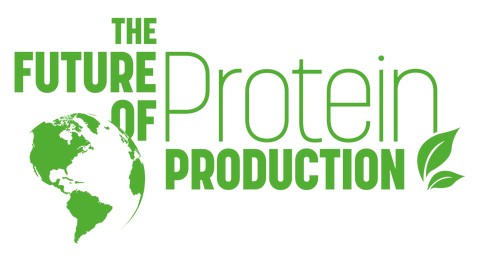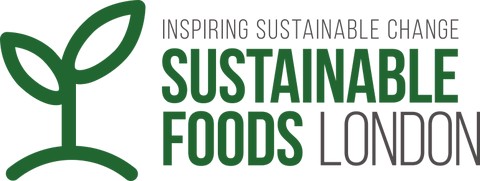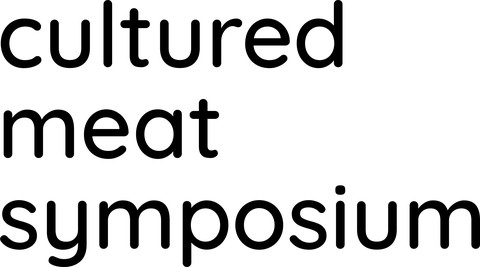Cellular Agriculture's Rising Star: A Conversation With Avery Parkinson
September 21, 2021 - 11 min read
Every now and again a young person comes along whose intellect and wisdom seem to defy their age. Over the past year, we’ve had the privilege of working closely with one such individual. If you haven’t yet heard of her, you probably soon will.
In July 2020, Protein Report received a message through its website contact form:
“Hi! My name is Avery Parkinson, and I’m a 15-year-old student from Ottawa, Canada. Over the past nine months, I’ve been doing a lot of research and writing into cellular agriculture as an alternative protein source, and this summer, I am doing a research internship at Tufts University and New Harvest on insect tissue engineering as a possibility for cultured meat. … As a frequent reader of your content, I was wondering how I could get more involved in the amazing work you do!”
A year later, Avery is now the 16-year-old executive director of Cellular Agriculture Canada. She’s also the recipient of a 2021 Diana Award, founder of A Sandwich or Two, and co-founder of the MapleWishes Foundation — not to mention one of Protein Report’s leading contributors. The list of her accomplishments, awards, and examples of selfless dedication to improving our food systems and helping those in need is both humbling and inspiring.
But who is Avery Parkinson, and what goes on in the mind of such a young leader? We decided to ask her.
Give us a brief introduction. Where you’re from, your main professional, educational, and extracurricular activities — basically a summary of what someone would find on your resume.
I’m from Ottawa, Canada, and in my last year of high school. I am very passionate about food production, and so in addition to working with Protein Report, I’m also the executive director of Cellular Agriculture Canada and am collaborating with Just Vertical — a Canadian vertical gardening company — to launch a podcast focusing on the wide range of topics that fall under sustainable food systems. In addition to these activities, I’ve started a project called the National Sandwich Making Initiative, which aims to get schools and youth groups across Canada organizing sessions where students come together to make sandwiches in support of their local homeless populations. Because of this, I’ve had the opportunity to be a part of programs such as the United Nations Sustainable Development Goals Ambassadors and the International Baccalaureate’s Student Innovators. In school, I am this year’s community service prefect and so am involved with our reconciliation coalition, sexuality and gender alliance, anti-racism and allyship club, and I help manage initiatives that support nonprofit organizations operating in our city.
There are so many reasons to be excited about cellular agriculture. Sustainability, animal welfare, more equitable food systems, new kinds of foods and culinary possibilities, and more. How did you first learn about cellular agriculture, and what initially captured your interest?
When I was 13, I was enamored with the idea of vegetarianism, and after a bit of contemplation, I decided to adopt the diet. Initially, I was convinced that if everyone gave up meat in favor of plant-based foods, many of the concerns surrounding modern livestock farming would be rendered inconsequential. But after observing my mostly meat-eating family, I realized that this approach was perhaps a little unreasonable and would be unfair to ask of everyone. Two years later, a friend told me about an article she read discussing Perfect Day’s 1,000-order limited launch of ice cream that incorporated non-animal whey protein. After doing a little more research and realizing that this was an application of cellular agriculture, I was struck by the technology’s potential to produce staples of our modern diet at scale and at reduced expense to the environment, public health, and animal welfare — basically the three concerns I had with conventional meat production. It may be able to ameliorate all of these challenges but still allow consumers to enjoy the foods they’ve always been able to, and that’s what fascinated me.
How has being immersed in the field changed your understanding of it (if at all), and what excites you most about it now?
Over the past couple of years, my understanding and feelings about cellular agriculture have mainly been reaffirmed. Being involved with organizations including New Harvest, the Good Food Institute, Big Idea Ventures, and Cellular Agriculture Australia has exposed me to many different angles from which people are working to advance the technology. This has really highlighted for me how interdisciplinary the subject is and how it not only benefits from but actually requires the expertise of all different professions and skill sets in order to realize its potential. We need the policymakers and regulators, the investors and incubators, the entrepreneurs and researchers, and the science communicators and reporters to make the field thrive. This is what really excites me — that there is no shortage of ways for people to apply their diverse expertise and backgrounds, which only hints at the creative things we might see come out of this field moving forward.
You recently became executive director of Cellular Agriculture Canada. Tell us about how that happened.
Last December, our wonderful executive director, Yadira Tejeda-Saldana, left us to work as research collaborations director at New Harvest. Up until that point, I had been volunteering with Cellular Agriculture Canada by doing communications for conferences and co-authoring a white paper. So in the interim, I served as volunteer coordinator to help manage some of the continuing projects. I really enjoyed taking on that leadership role and thinking of my own ideas for how we might further the field in Canada, and after a few months, it was suggested to me by a couple of people that I apply to become the next executive director.
As you explored in your article, Cellular Agriculture Finds Its True North, Canada has a potentially significant role to play in the industry’s development. What do you see as the main challenges and opportunities unique to Canada? And how do you plan to address them in your new role? Any other exciting plans for the organization?
To be honest, when it comes to cellular agriculture, I think that the majority of the challenges Canada has are a combination of challenges we are seeing in other countries. As the technical side of the field becomes even more impressive — the products becoming more accurate analogs for conventional meat and their production more feasible — the importance of having a fair and appropriate regulatory framework for commercial products is becoming more apparent. Additionally, because it is not often clear whether cellular agriculture is considered to be “agriculture” or a “bioscience,” it is more difficult to apply for sources of governmental funding. This is one of the main issues that CAC is trying to tackle. Earlier this year, we convened the first-ever panel of government regulators to discuss how the implementation of a regulatory framework might look and we are in the process of publishing a report summarizing the findings. We are also currently looking for a policy coordinator to join our team and help us work with the regulators to establish and pursue next steps.
Public acceptance of the technology has also been brought up as a potential concern, and of course, I think that there are better ways of going about introducing the technology to the general public. But I am also of the opinion that if cell-based products can offer a similar or better experience to consumers and achieve price parity with conventional protein products, their adoption will follow. As with any emerging technology, different segments of Canadian society will be able to bring different perspectives and will raise different concerns. In order to make sure that the implementation of this technology is as beneficial for all Canadians as possible, CAC is trying to engage different stakeholders in conversation so that we can proactively address these concerns with informed solutions. In particular, our country has a long history of colonization, the legacy of which is still visible today in the way that food insecurity, the climate crisis, and some chronic diseases are disproportionately affecting our multitude of Indigenous communities. In the interest of contributing to the effort to decolonize our food system, we are starting a project to listen to Indigenous perspectives on the technology to discern how it can be realized in such a way as to not intensify, and perhaps counteract, the social issues highlighted by our current food system.
Part of what makes you so remarkable is your age. How does it feel to be such an influential young leader? What unique perspective do you think that might bring to your work, the industry, public awareness, and younger generations?
I’ve never considered myself to be that influential of a leader, but I do appreciate the sentiment! I think that everyone who works in cellular agriculture — and even the alternative protein industry — is a visionary, and I’ve been fortunate to have been able to learn from many remarkable people from many different professional backgrounds who are lending their expertise to the field. I think that as a youth, there is a certain sense of urgency to act on the climate crisis, public health, and other time-sensitive issues as this is the world we inherited and will be passing on. As an individual, I also hope to inspire other young people by example to continuously learn and do what they can to advance their passion. From an outsider’s perspective, cellular agriculture does seem like a very niche field, but it is something I am happy to contribute to every day.
Should cellular agriculture be taking a more forward-looking approach to marketing, like we’ve seen with the Shojinmeat Project in Japan? If so, what might that look like in a Western cultural context?
I am by no means an expert when it comes to marketing, but I do admire the sense of futurism that the Shojinmeat Project is able to evoke through its marketing and how it is able to align with styles of graphics that are prevalent in Japanese pop culture (at least from my understanding). I think because Canada has such a diverse range of consumers, in particular a significant conservative demographic, we would need to be a bit wary of making their initial brush with the technology too futuristic in terms of the way it’s presented. For other consumers, this strategy may be incredibly effective — it’s about finding that balance in order to provide a unified face for the technology, especially at first. But in all honesty, this is a topic about which I know very little, so I would be very interested to hear other perspectives.
You’re running Cellular Agriculture Canada, managing your own charity and nonprofit organization, working a summer job, and working with Protein Report — and you’re still in high school. How do you manage everything? Do you sleep?
I think like most students, time management is always a work in progress. That being said, when you enjoy the things you’re working on, it is that much more exciting to commit your time to them. One thing I have learned over the past few years is to never be afraid to ask for help. It’s impossible to achieve all the things you want to complete by yourself, and more often than not, collaborating with someone else with complementary expertise will make you more successful. For this reason, I am so grateful for our amazing team of volunteers and board members at Cellular Agriculture Canada and the other organizations with which I am affiliated.
At 16 you’ve already launched an impressive career. Any ideas about what directions you might go in the future, academically or professionally?
At the moment, it’s a bit of a debate between bioengineering and medicine. Regardless of what I end up doing, I would want it to have implications for systems change beyond the actual tasks at hand. With respect to bioengineering, I would hope to work in the cultivated meat space, or at least the alternative protein industry in general. This might end up looking like working at a startup or in research, but most likely some combination of the two. Medicine was a relatively recent consideration after I spent the summer working at a group home for developmentally challenged adults. If I do pursue that route, I would like to couple my practice with policymaking in order to ensure that currently underserved segments of Canadian society are able to have access to competent and equitable healthcare.
Besides nerding out about food and cellular agriculture, what else do you enjoy? Do any particular arts or other activities especially inspire you?
For sure! For about 10 years now I have been learning and performing a style of classical Indian dance called Odissi. Since I was in elementary school, I have also been writing competitive math contests. I’m also an avid reader, and my favorite authors at the moment are Zadie Smith and Viet Thanh Nguyen. Admittedly, my interest in food-related things does carry over into my hobbies — I also enjoy cooking and gardening with my extended family.


















